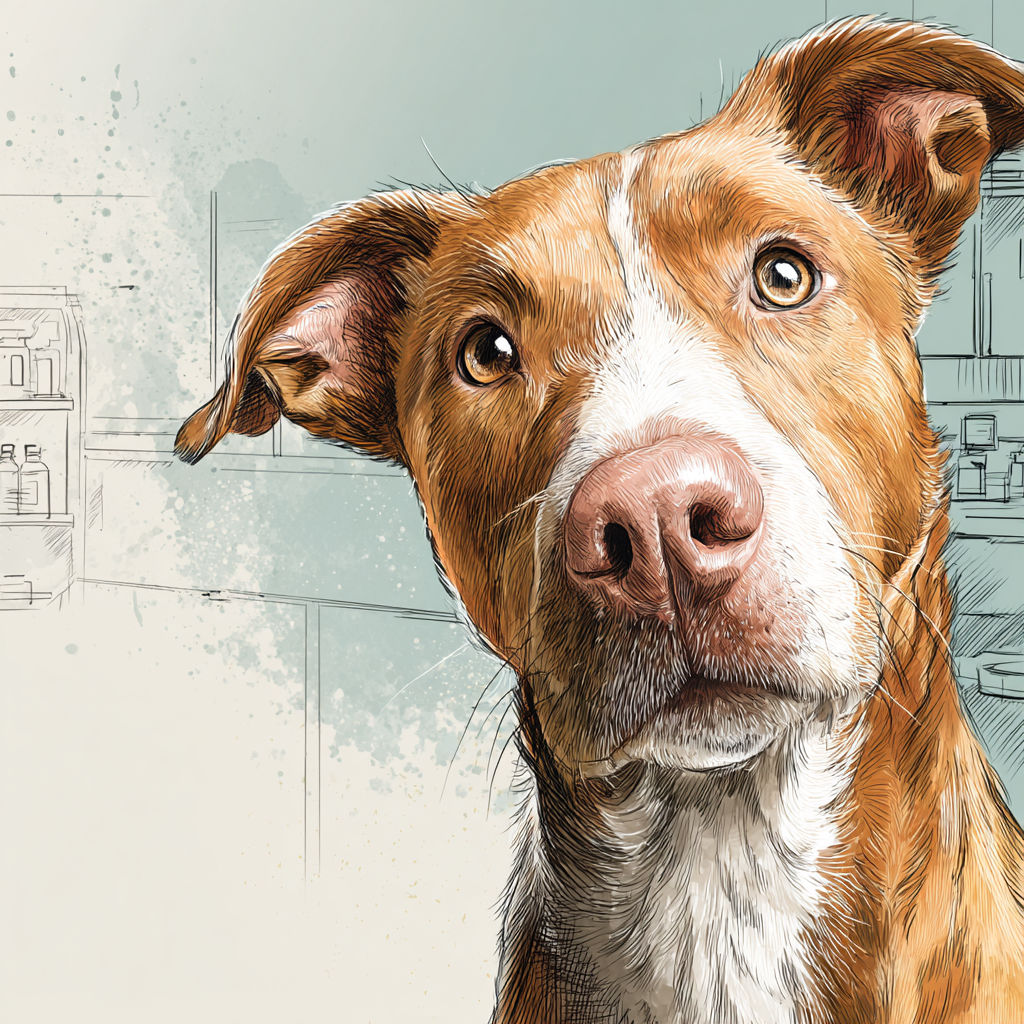7 Causes of Runny Noses in Dogs Should You Worry?
If you’ve ever noticed your dog sniffing or having a constant nasal drip, you might wonder what’s causing their runny nose and if it’s something to be concerned about. Did you know that about 10% of dogs experience some form of nasal discharge at some point? While it can sometimes be harmless, other times it indicates underlying dog health issues 🐶. In this post, I’ll share the seven common causes of runny noses in dogs and help you understand when to seek veterinary advice. By understanding these causes, I hope you’ll feel more confident in caring for your furry friend and recognizing signs of serious canine respiratory problems. Let’s dive into what might be causing your dog’s nasal discharge and how to handle it effectively.
What Is a Runny Nose in Dogs & Why Does It Happen?
A runny nose in dogs, medically known as nasal discharge, occurs when excessive mucus is produced in the nasal passages. It can manifest as a watery, thick, bloody, or cloudy discharge. Dog nasal problems can be caused by a variety of factors, ranging from allergies to infections. Many times, nasal discharge in dogs is accompanied by other symptoms like sneezing, pawing at the face, or coughing. Understanding the causes can help determine if your dog’s runny nose is just a minor issue or something more serious.
1. Allergies: A Common Culprit
One of the most common causes of runny noses in dogs is allergies. Just like humans, dogs can develop allergic reactions to pollen, dust, mold, and even certain foods. Allergies affect 10-20% of dogs and often lead to clear, watery nasal discharge along with itchy eyes and sneezing. If your dog seems to sniff more often during certain seasons or environments, allergies might be the cause. Managing allergies involves avoiding known allergens, using medications prescribed by your vet, and sometimes, allergy testing.
2. Infections: Upper Respiratory Illnesses
Upper respiratory infections are common in dogs, especially those in kennels and shelters where animals are in close contact. These can be viral, bacterial, or fungal and often cause dog nasal discharge that might be cloudy, purulent, or bloody. Animals with infections may also experience sneezing, coughing, and lethargy. Prompt veterinary treatment can help prevent complications and get your pup back to health.
3. Foreign Bodies & Nasal Mites
Sometimes, a foreign object like a grass seed or debris can enter a dog’s nose, leading to localized irritation and nasal discharge. Nasal mites, tiny parasites causing 1-2% of runny nose cases, can also cause persistent nasal issues. These mites are often difficult to detect without veterinary examination but are commonly diagnosed with microscopic analysis. If your dog is sneezing excessively or pawing at their nose, mention these possibilities to your vet.
4. Dental Problems & Anatomical Issues
Dental infections can sometimes cause dog nasal problems because of the close connection between the mouth and nasal cavity. Additionally, brachycephalic breeds with flat faces are more prone to nasal issues due to their anatomical structure. These breeds often have narrower nasal passages which may contribute to nasal discharge and sniffling. Regular dental care and breed-specific awareness are essential for preventing these issues.
5. Tumors & Chronic Conditions
Though less common, tumors in the nasal cavity are responsible for 2-4% of cases of runny nose in dogs. Symptoms might include persistent nasal discharge, bleeding, or swelling. Chronic nasal problems, if left untreated, could indicate growths or other serious conditions requiring prompt veterinary attention. Early detection through exams and imaging is vital for managing such health issues.
When Should You Worry & Seek Veterinary Care?
While some causes, like allergies or minor infections, can resolve on their own or with minimal treatment, certain signs warrant immediate veterinary attention. If your dog’s nasal discharge is bloody, accompanied by difficulty breathing, persistent sneezing, coughing, or if they seem lethargic or in pain, it’s crucial to consult your vet promptly. Recognizing the symptoms of more severe dog health issues will ensure your pup gets the care they need before conditions worsen.
Conclusion & Final Tips
Understanding why your dog has a runny nose can help you determine whether it’s a minor nuisance or a sign of something more serious. Monitoring your dog’s overall behavior and symptoms alongside nasal discharge is key. Regular vet checkups, proper hygiene, and being alert to changes in your dog’s nose or breathing can prevent minor issues from becoming major health problems. If in doubt, always seek professional advice to ensure your furry friend stays healthy and happy 🐕.

FAQs About Runny Noses in Dogs
- What are the main causes of runny nose in dogs?
- The main causes include allergies, infections, foreign bodies, dental issues, mites, tumors, and anatomical abnormalities.
- Is a runny nose in dogs serious?
- It depends on the cause. Mild cases due to allergies or minor infections may resolve quickly, but persistent or bloody nasal discharge requires veterinary evaluation.
- How can I treat dog nasal discharge?
- Treatment varies based on the cause. Your vet might prescribe medications like antibiotics, allergy meds, or recommend removal of foreign objects or growths.
- Why is my dog’s nose running and sneezing?
- This could indicate allergies, infections, or irritants. If combined with other symptoms, consult your vet for proper diagnosis.
- Can nasal problems in dogs be prevented?
- Regular veterinary checkups, good hygiene, and avoiding known allergens can help prevent many nasal issues in dogs.
Remember, always consult your veterinarian if you’re unsure about your dog’s health or if symptoms worsen. Your pet’s well-being is worth it! 🐾